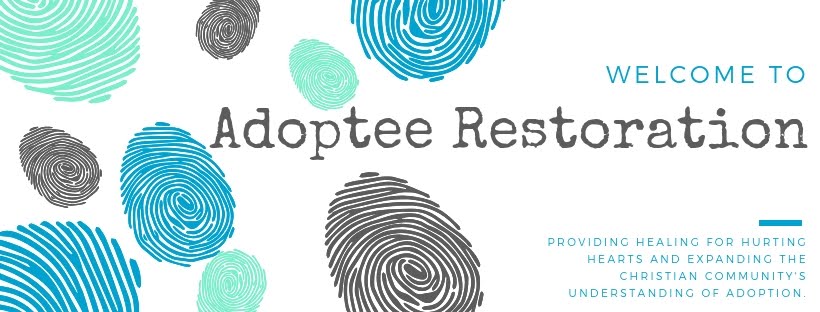Today I'm collaborating once again with Laura Dennis, and we're discussing what it takes to get out of the adoptoland echo chamber. (Did you know that exists? Yup.) If you've arrived here first, hop over to Laura's to read part one and then come back.
Deanna:
I
so agree with you, Laura. I still get mad too, but I believe unless we deal
with or at least manage our madness we’ll never get out of the echo
chamber. Inside the echo chamber we go
around in circles because of a plethora of things…as you mentioned, we can’t
agree on language (birthmother vs. firstmother), we think “our group” is most
important (domestic adoptees vs. international adoptees) or we veer off into a
plethora of other social justice issues –muddying the waters rending the
adoption reform message unclear. I’ve landed on some adoptee sites I used to
frequent and wondered if I landed at the wrong site! They have picked up so
many causes it’s unclear what they are even fighting for anymore. I for one believe we need an undeniable clear
and focused message to get out of the echo chamber.
In addition to a clear message that remains entirely
adoption reform/rights related, we’ve got to be able to have conversations with
others who don’t believe or think like we do – without flinching or reacting. We’ve
got to respond thoughtfully, not react immaturely. If we can’t manage to do this, we will stay
in the chamber. It’s that simple.
Laura: Ability
to respond thoughtfully goes to the issue of responsibility. Until the wider population no longer sees us as stubbornly
unwilling to accept responsibility, the echo chamber endures. The shifting of
blame goes round-and-round, as you said.
What do I mean by “responsibility”?
Do I mean victim-blaming? No.
Absolutely not.
We do not blame
the victim for what happened to him or her.
However, this does not mean that this person is
off-the-hook.
Those who have experienced trauma—including first moms who
were mistreated and forced to relinquish, including adoptees who feel grief and
loss at losing their first families, including adoptive parents who are
devastated by infertility and loss—are STILL responsible for their actions
going forward.
We are all responsible for finding healing for our own pain.
It is NOT OKAY for those who remain unhealed to take out
their hurt on others.
This is why the echo chamber endures; if we are unhealed, we
feel justified in our ranting, and it is simply exasperating.
Deanna:
Couldn’t
agree with you more, Laura. We are responsible to heal. Nobody else can do that
for us. I also believe we have to be
prepared to thoughtfully dialogue with people who don’t believe the way we do.
How else are we going to break out of the chamber?
There’s a place for ranting.
I do mine while laying on my hammock on my patio, talking to you. I
don’t do it when I’m trying to get a message across to people who oppose all
that we stand for on this issue.
It’s interesting that as you and I are collaborating on this
post, a letter hit my inbox from a blogger in the adoption community, asking to
interview me on her blog. This is someone who is not well respected in our
circle of adoptee friends. In fact many people revile this person and consider
her an enemy to everything we stand for. But my thought is this…if we don’t say
yes to conversations with those who believe differently than us, how will we
ever see change come? My next thought is
this – it’s not selling out to appear on someone’s site that you don’t agree
with, as long as you maintain your integrity in all you say.
As much as we don’t want to “go there” we have to dialogue
with what many in our community refer to as “adoptoraptors.”
Laura: I
agree. Recently I was so pleased to have several large adoption information
sites request an advance review copy of Adoption
Therapy, Perspectives from Clients and Clinicians on Processing and Healing
Post-Adoption Issues (which I edited and to which you contributed the
Afterword). … If I were to remain in the echo chamber, I would say “no,” to
them, as these sites seek to help people adopt. [As in, how dare I engage with
those who think adoption is okay?]
While I believe we should do everything we can from a policy
and personal standpoint to encourage family preservation, if such organizations
are willing to read an anthology whose basic premises are:
1. An adoptee’s first losses—including mother
loss, heritage loss, ethnicity loss, language loss, and more—absolutely must
not be discounted.
2. Whatever training or approach is used, the
client’s individual experiences must be validated through empathetic care.
… Why wouldn’t I engage with them? The book is meant to get
help, not only for our generation, but for the next generation of adoptive
parents, first families and adoptees. This is vital information that needs to
be absorbed—and sometimes what needs to be heard is difficult to listen to. If
people are willing to engage, to learn from those who have walked this path …
it’s my responsibility to educate.
Deanna: Yes!!
I fully believe if they are willing to engage – we need to. Even if they don’t respond favorably right
away, at the least it’s given them something to think about. It takes a serious amount of time for most
people to come out of the fog so anything you can do to get them one step in
the right direction is progress.





